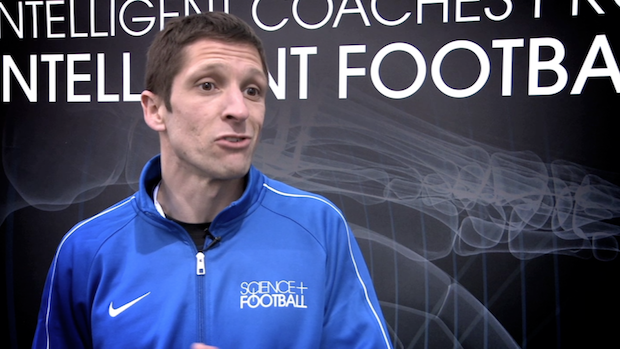
The best features, fun and footballing quizzes, straight to your inbox every week.
You are now subscribed
Your newsletter sign-up was successful
Want to add more newsletters?

Five times a week
FourFourTwo Daily
Fantastic football content straight to your inbox! From the latest transfer news, quizzes, videos, features and interviews with the biggest names in the game, plus lots more.

Once a week
...And it’s LIVE!
Sign up to our FREE live football newsletter, tracking all of the biggest games available to watch on the device of your choice. Never miss a kick-off!
Join the club
Get full access to premium articles, exclusive features and a growing list of member rewards.
Every footballer loves game day, most hate training. The monotony of doing the same thing, day-in-day-out can get physically and mentally draining.
If you’re sick of running through the same drills and executing the same exercises at the gym then why not try your hand at another sport? Nothing can replace actually playing the game, but there are many sports that have transferable skills.
Matt Cook, head of sports science and strength and conditioning for Manchester City’s academy, knows this better than most.
Cook has coached elite athletes in rugby league, squash, swimming, cycling and water polo, as well as working for the Scottish Institute of Sport.
He believes other sports can not only alleviate boredom, but also boost your performance on the pitch by replicating the actions and movements a player will perform during a game.
To find out which sports can help take your game to the next level, hit play and let Matt explain.
Matt Cook was talking at the Science + Football Conference. For more information visit www.scienceandfootball.com.
Also see:
"Swimming and cross country running made me a Premier League player"
What your game can learn from... Mixed martial arts
What your game can learn from... Squash
What your game can learn from... Boxing
What your game can learn from... Long Jump
Louis Smith's stretching school
What your game can learn from... The Olympics
What your game can learn from... Hurdling
What your game can learn from... Handball
What your game can learn from... Snooker
What your game can learn from... Darts
What you can learn from... Rugby Union
What you can learn from... Rugby League
What your game can learn from... Long distance running
What you can learn from... Cycling
"Having worked in multiple sports; squash, cycling and swimming, I think the weekly scheduling that goes with long-term athlete performance in sports where you don't have to peak every Saturday [is better].
I think there's a much greater understanding of what physical qualities you can train at the same time, what physical qualities work well together. In football we have to play every week so it's about scheduling your week so you can train the right physical qualities at the right time. That's probably the major thing that I've tried to bring and change.
I can certainly recommend squash - it's a great multi-directional, agility-based sport. Heart rates are very high for long periods of time, because unlike football you take every other shot. You're always involved.
I'd also recommend things like rock climbing, judo and sports where you're using your body and developing strength in different planes of movement. It's different exercises through full ranges of movement.
Football, a lot of the time, causes certain muscles to get tight, other ones to lengthen or some to get stronger than others. So they're very good sports at balancing that off."
The best features, fun and footballing quizzes, straight to your inbox every week.
 Join The Club
Join The Club










